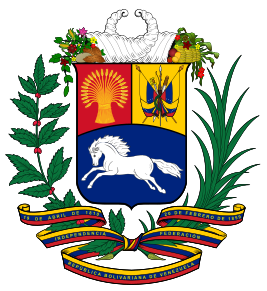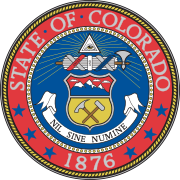A recall election is a procedure by which, in certain polities, voters can remove an elected official from office through a direct vote before that official's term has ended. Recalls, which are initiated when sufficient voters sign a petition, have a history dating back to the constitution in ancient Athenian democracy and feature in several current constitutions. In indirect or representative democracy, people's representatives are elected and these representatives rule for a specific period of time. However, where the facility to recall exists, should any representative come to be perceived as not properly discharging their responsibilities, then they can be called back with the written request of specific number or proportion of voters.

A ballot measure is a piece of proposed legislation to be approved or rejected by eligible voters. Ballot measures are also known as "propositions" or simply "questions".

The Venezuelan recall referendum of 15 August 2004 was a referendum to determine whether Hugo Chávez, then President of Venezuela, should be recalled from office. The recall referendum was announced on 8 June 2004 by the National Electoral Council (CNE) after the Venezuelan opposition succeeded in collecting the number of signatures required by the 1999 Constitution to effect a recall.
In the politics of the United States, the process of initiatives and referendums allow citizens of many U.S. states to place new legislation on a popular ballot, or to place legislation that has recently been passed by a legislature on a ballot for a popular vote. Initiatives and referendums, along with recall elections and popular primary elections, are signature reforms of the Progressive Era; they are written into several state constitutions, particularly in the West.
The Taxpayer Bill of Rights is a concept advocated by conservative and free market libertarian groups, primarily in the United States, as a way of limiting the growth of government. It is not a charter of rights but a provision requiring that increases in overall tax revenue be tied to inflation and population increases unless larger increases are approved by referendum.
The Oregon Direct Legislation League was an organization of political activists founded by William S. U'Ren in the U.S. state of Oregon in 1898. U'Ren had been politically activated by reading the influential 1893 book Direct Legislation Through the Initiative and Referendum, and the group's founding followed in the wake of the 1896 founding of the National Direct Legislation League, which itself had its roots in the Direct Legislation League of New Jersey and its short-lived predecessor, the People's Power League.

William Simon U'Ren was an American lawyer and political activist. U'Ren promoted and helped pass a corrupt practices act, the presidential primary, and direct election of U.S. senators. As a progressive activist, U'Ren championed the initiative, referendum, and recall systems in an effort to bring about a Georgist "Single Tax" on the unimproved value of land, but these measures were also designed to promote democracy and weaken the power of backstage elites. His reforms in Oregon were widely copied in other states. He supported numerous other reforms, such as the interactive model of proportional representation, which was not enacted.
Amendment 44 was a proposed amendment to the state statutes submitted for referendum in the 2006 general elections in the U.S. state of Colorado. The amendment proposed the legalization of the possession of one ounce or less of marijuana for any person twenty-one years of age and over, as long as marijuana use does not occur in public. The measure was eventually defeated at the polls by 60-40 percent.

Colorado Referendum I was a proposed law that would have established domestic partnerships in the U.S. state of Colorado. The bill was passed by the Colorado General Assembly and was submitted to popular referendum during general elections on November 7, 2006.

Referendum K is a referendum on the 2006 Colorado ballot. It "directs the Colorado attorney general to initiate, or join other states in, a lawsuit against the U.S. attorney general to demand that the federal government enforce existing federal immigration laws".1

Amendment 38 was a measure on the 2006 ballot in Colorado. If passed, it would have amended the Colorado Constitution. It would have extend the petition process to all levels of state government to expand citizens' ability to propose changes to state laws and local ordinances or resolutions.

Referendum E was a 2006 referendum in Colorado to reduce property taxes for qualified disabled veterans by exempting a portion of the value of their home from property taxation. Voters approved the referendum 78% to 22%. A qualified disabled veteran would have a service-connected disability with a 100 percent permanent disability rating.It was approved by the electorate and became Article X Section 3.5 of the state constitution. Subsequent enabling legislation in 2007 removed military disability retirements as a recognized eligibility, leaving only disability ratings of the US Department of Veterans Affairs. No similar provision has been made for survivors of active duty military who die in the line of duty.

Referendum H was a 2006 Colorado referendum to bar businesses from claiming a state income tax business deduction for wages paid to workers who were known at the time of hiring to be undocumented immigrants. It passed and it affected employees hired on and after January 1, 2008.

Referendum G was a 2006 Colorado ballot measure. It removed provisions, dates, and references to obsolete laws from three sections of the state Constitution. The laws removed regarded militia duty dating back to the post-Civil War era, the consolidation of the Denver Public School District which has already occurred, and references to gender and past dates in the Old-Age Pension Fund.

Elections in Oregon are all held using a Vote by Mail (VBM) system. This means that all registered voters receive their ballots via postal delivery and can vote from their homes. A state Voters’ Pamphlet is mailed to every household in Oregon about three weeks before each statewide election. It includes information about each measure and candidate in the upcoming election.

Amendment 46, also known as the "Colorado Civil Rights Initiative, was a proposed initiative on the Colorado ballot for 2008. If ratified, Article II of the Colorado Constitution would have stated:
The State shall not discriminate against, or grant preferential treatment to, any individual or group on the basis of race, sex, color, ethnicity, or national origin in the operation of public employment, public education, or public contracting.

The U.S. state of Oregon is one of the many states in the United States that has direct democracy in the form of initiatives and referendums. Oregon residents introduced this system in 1902 with a ballot measure. Nationwide, referendums and initiatives became known as the "Oregon System" of direct government.
This page is based on this
Wikipedia article Text is available under the
CC BY-SA 4.0 license; additional terms may apply.
Images, videos and audio are available under their respective licenses.






